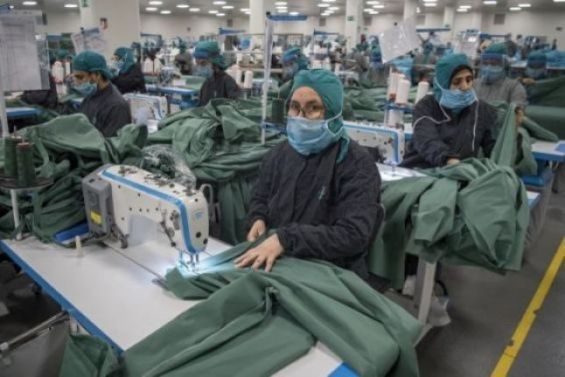Like many other countries, Morocco is faced with big challenges amid the coronavirus health crisis. According to a recent report by the Legatum Institute, these challenges can hinder the country’s economic growth, which has been on a downward trend during the last two years and affect trade.
Based on the British institute's Global Index of Economic Openness, published in May 2019, the case study on Morocco recalls that over the past decade, the Kingdom has undergone significant changes.
«Morocco’s important trade arrangements, political stability and improving infrastructure provide a strong foundation for increased economic openness», wrote the authors of the report.
Moreover, Morocco has been able to make «good social and economic progress : With its income per capita increasing by 70% since the turn of the Millennium, and poverty rates falling by 40% over the last 10 years».
Despite the significant progress, Morocco’s ranking for governance keeps declining. The country «ranks poorly for political accountability and government effectiveness, and has seen declines for executive constraints, the rule of law, and regulatory quality», the report argues. These trends threaten «the progress made elsewhere and highlights the partial implementation of reforms», the report indicates.
Experts from the Legatum Institute also explain that the pandemic threatens two main dynamic sectors of activity in Morocco, namely international trade and tourism. The other long-term challenge is «the impact of a recent drought on Morocco’s large agricultural sector which has highlighted the country’s susceptibility to climate change».
Strengthening good governance
Said report sets four structural drivers of economic openness. The authors of the report stress that Morocco should «invest in the expansion of its broadband network, and continue to invest in improving the density of road and rail infrastructure».
The study also believes that the country should «steadily increase the role of the private sector in key sectors of the economy and open its agricultural markets». «Regarding domestic market contestability Morocco should: Embed competition principles in key enabling sectors such as energy and telecommunications by lifting entry barriers that protect incumbents and reinforcing the role of sector regulators, ensure competitive neutrality, so that all organizations, whether privately or publicly owned, face the same set of rules, and strengthen public procurement through a clear strategy and associated funding for the National Commission for Public Procurement».
As for the labour market, Morocco could «make more flexible to address high levels of informality, and skills better matched to jobs available».
The study also suggests supporting growth and expanding economic activity across the country by strengthening governance. «Strengthening its governance Morocco could underpin more growth», it explained. «Establish legally independent regulators in all utility sectors that can effectively set and enforce existing regulations», it concluded.





 chargement...
chargement...













